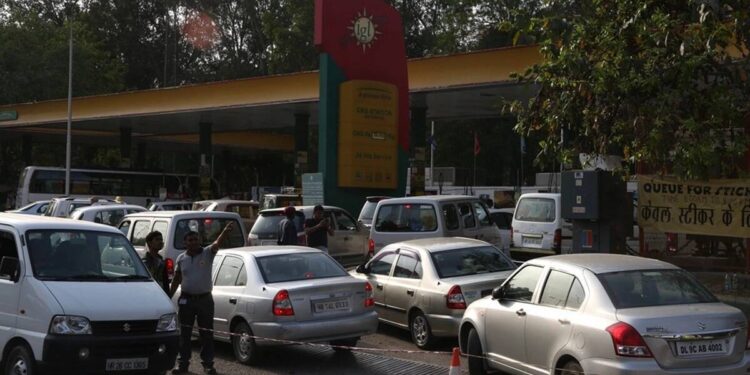The buzzword around electrification is growing day-by-day but at the same time, especially in the passenger vehicle segment in India, the demand for CNG vehicles is also accelerating.
In fact, if one has to go by the trend in the space, the CNG market has matured from being an aftermarket solution for the taxi industry to now a fast-growing offering in the personal vehicle space.
Maruti Suzuki India, one of the largest passenger vehicle manufacturers in the country, is also the market leader in the CNG space. Thanks to introducing 8 models from the current line-up of 14 models in the passenger vehicle range with a CNG option, it accounts for almost 96 per cent market share in the segment.
“Of the 2.73 lakh CNG vehicles sold last year, Maruti Suzuki India sold about 2.34 lakh units,” shares Shashank Srivastava, Senior ED – Marketing & Sales, Maruti Suzuki India with Express Mobility.
Customer awareness, safer option, equal performance to their petrol/diesel siblings, improved availability of fuel stations and cheaper price of the fuel, has made CNG vehicles much more acceptable to the masses.
Hyundai Motor India has introduced CNG option for the Grand i10 NIOS, Aura, Santro and Xcent. It is also “open to expanding its CNG portfolio in case of an opportunity arises.”
Tarun Garg, Director – Sales, Service & Marketing, Hyundai Motor India adds, “We are seeing an excellent traction for CNG vehicles. It provides a very good option to customers in terms of reduced total cost of ownership. Not only is the price of CNG fuel less than petrol/diesel, but the fuel efficiency too is relatively better. Plus of course the benefits of lower emissions. All in all, CNG provides a very good option to customers in cities where CNG pumps are available.”
In fact, according to Hyundai Motor India’s internal analysis, the monthly average sales of CNG products have grown from 3,132 units in CY2021 to 4,946 units in the January-May 2022 period. The company sold 37,854 CNG vehicles last year, in compared to 24,730 units in the first five months of 2022.
For Tata Motors’ the two products in the CNG offering – Tiago and Tigor – contribute 10 per cent of its overall sales volume.
“With rising cost of petrol and diesel and the increasing need for eco-friendly cars, the CNG segment has started witnessing growing demand. One of the major reasons for this increasing demand is the low cost of ownership of a CNG vehicle and increasing accessibility of CNG stations. Furthermore, about 52% of the sales of Tigor and Tiago come from iCNG,” said the company in a statement.
Maruti’s Srivastava expects that despite the semiconductor shortage impacting overall production and deliveries the overall passenger vehicle segment will see CNG vehicle sales to touch or surpass 4 lakh mark.
“Share of diesel vehicles is coming down and is now about 18 per cent compared to a share of 58 per cent almost 8-9 years. The share of diesel vehicle sales has remained at 18 per cent for almost last 18 months, whereas the share of CNG vehicles has been increasing. Many new OEMs are launching CNG models. And for existing players including Maruti Suzuki we will expand the CNG range. That should obviously increase CNG penetration in the passenger vehicle segment,” shares Srivastava.
He cites the example that with just 14 models (across OEMs) the penetration of CNG vehicles is 11 per cent, which means there is a huge headroom for growth.
When queried if there is potential of CNG models in vehicles in the above Rs 10 lakh range?
“Yes, it is absolutely there. We also used to think that customers for higher-end models would not like CNG, as it was seen as more related to only fuel savings. There were questions on safety and performance, but now with retrofitting being not allowed in the BS VI era, we see a change in customer perception towards the factory fitted CNG models. The perception has changed especially in terms of safety, performance and driving experience. They are looked in a positive manner. Therefore, the acceptability has increased, and even in the higher-end segment, from a research point of view that we did the acceptance is quite likely. The Indian consumer is very sensitive to the running cost, the initial cost of acquisition is one part, but running cost is the other one,” concludes an optimistic Srivastava.
Also read: Top 10 most fuel-efficient CNG cars in India in 2022: Celerio CNG to Tiago CNG













